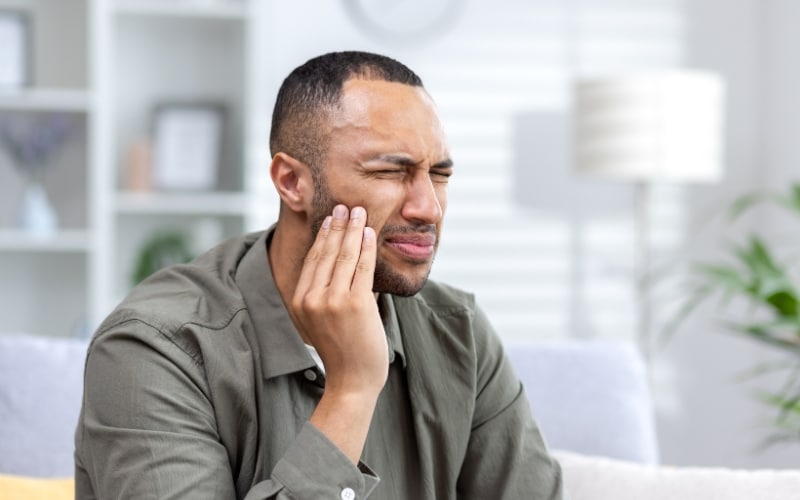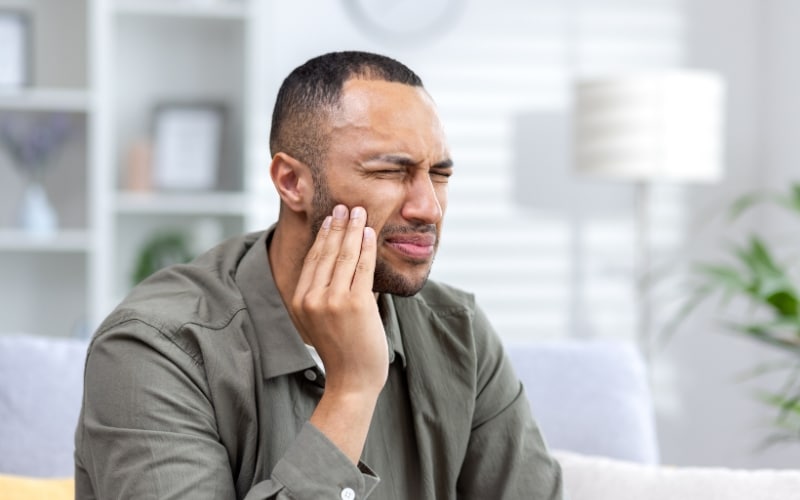New Patients Welcome!

Emergency dental visits can be overwhelming. A broken tooth, cracked or fractured tooth, gum infection, bleeding or swelling in the gums, a dental emergency can come in any form. In such a scenario, your first instinct will be to contact a dentist nearby.
An in-person dental visit is absolutely necessary. However, what after that?
You need to manage the tooth pain after the dental visit as well. How well you manage the pain later plays a vital role in your overall recovery.
Tips to Manage Pain After Emergency Dental Visit
Follow Your Dentist’s Instructions
After you are done with your dental visit, your dentist will surely give you some specific instructions. Follow those instructions by heart, and do not miss a single thing. Following these will ensure your emergency does not escalate any further, and you get the much-needed relief from the pain.
Take Over-the-Counter Pain Relievers
There are some painkillers like ibuprofen and acetaminophen that work for tooth pain. You can try these painkillers, but only with the affirmation of your dentist. But remember, you need to take these medicines according to their prescribed dosage. Be attentive to all the details, or else you will need another visit to an emergency dentist in Ventura.
Apply a Cold Compress
Ice packs work brilliantly for swelling or pain. You can wrap some ice cubes in a cloth or a plastic bag and hold it outside your cheek for a few minutes. Then, remove the pack for some time and repeat the process several times.
During the first 48 hours after your dental visit, do this in the interval of a few hours. Ice can numb the pain naturally and give you relief.
Take Only Soft Foods
Food is a major part of healing after any treatment. To keep the treated area calm, you should avoid hard, crunchy, and spicy foods.
Stick to soft foods that are easy to swallow and chew. Add smoothies, mashed potatoes, and yogurt to your daily diet.
Good and soft food will ensure your nutrition without adding any further strains on your teeth.
Stay Hydrated
Drinking plenty of water is always a crucial part of your recovery. With all the medication and rinsing, your body needs to be hydrated all the time.
Proper hydration means less chances of inflammation. However, avoid using straws to prevent dry sockets.
Staying hydrated supports your recovery after an emergency dental visit.
Rest and Relax
Rest is always essential for a speedy recovery. After your visit to the dentist, take as much rest as possible.
Keep your head in an elevated position to avoid pressure in the tooth.
Stay away from any physical activity that can give you strain.
When you allow your body to rest and relax, your body prioritizes recovery and reducing pain.
Oral Hygiene
Taking good care of your teeth is a vital part of your recovery. Slightly modify your existing routine.
- Use a soft-bristled toothbrush to avoid irritating the treated area.
- Rinse with lukewarm water to reduce swelling and prevent bacteria growth.
- Avoid alcohol-based mouthwash for your tender gums.
Monitor Signs of Complications
Some mild discomfort and pain are normal after a dental appointment. However, nothing should be unbearable.
Look out for signs that tell you to contact your dentist immediately.
- Bleeding from the gum or mouth
- Excessive pain while biting or chewing
If you notice anything like this, go for another visit soon.
Managing pain after a dental visit does not need to be confusing and overwhelming all the time. With these simple steps, you can ensure a speedy recovery for yourself so you can resume your daily routine soon.



